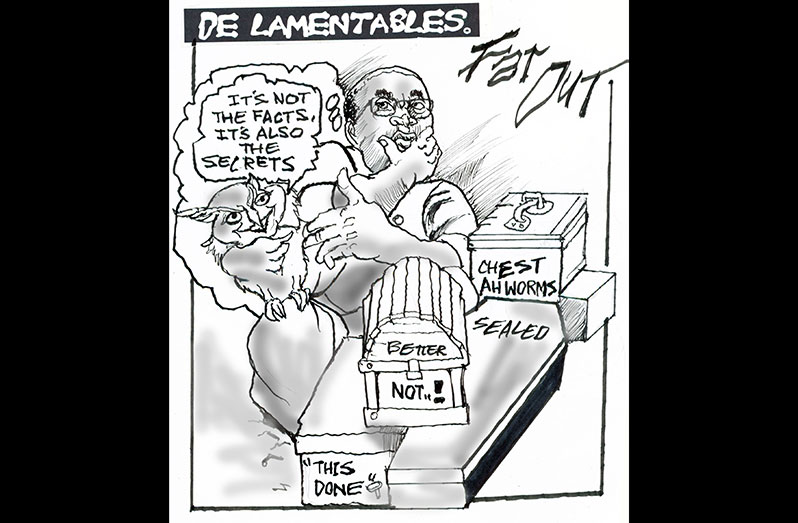BOTH my father and godfather are gone. They told me this when I told them that I liked to investigate issues the way that William Shirer did for his book ‘THE RISE AND FALL OF THE THIRD REICH.’ Except that my book would be on the Caribbean and Black American soldiers that were left out of the movie, ’THE LONGEST DAY.’ What were they talking about? Well, they knew that those platforms would be long gone by the time those opportunities would be open to my enthusiasms. In my conceit I had smiled to myself back then, only to be rebuked again and again with maturity, by the solemn facts that I must close my eyes to, and must in many ways become another silent custodian of the hypocrisy of the so many. The subject of this column however is rooted in boyhood friendships, and based on these two friends and the world that held them together in an ad hoc way. Three years difference was not the total of their difference.
The older boy could not read, he was rigidly bound by a stepfather who employed mechanisms of employment from buying bottles to making coconut oil to other areas of copra production to sustain the rest of the family. The elder boy could most times not fit into the village party dress codes or the city fashions that bigger youth wore, who traversed from town to country for special annual functions. In this area he shrank away. The younger of the two grew with godparents that ensured that he was literate; by 12 years old, he had already covered Homer’s Odyssey and the Iliad. Nor did he, the older boy indulge in the highly argumentative exchanges of comic books, that enveloped both boys and girls in some village cultures that were influenced by a Georgetown cultural presence, mainly road village shops.

But there were village and national challenges that impacted nevertheless. This was the post-independence 70s, and new expressions on income had to be conceptualised and marketed to a generation rooted in just colonial formats of public service employment. From financed pioneer crews into co-operative societies, that brought an understanding of Agriculture as business, both of the friends were enveloped in the “Kuru Kuru Agro-Industrial Young Settlers Co-operative Society” (KAYS). The younger one became in time the Secretary of KAYS while the older of the two indicated a calling for a specialist training Corps, which he invited the younger to, but the younger did not find it interestingly challenging enough to abandon KAYS. Neither of the two realised that Guyana would be enveloped and crushed by the global oil crisis, including KAYS. By the 90s, the Politicians had lost grip of the economics of Guyana, and Norco businesses with its arsenals and directives had become relevant to issues along ethnic and economic lines were being drawn, the weaker politicians were dragged along, the nation gowned under the loss of law and order.
The two Friends would be drawn together again. It is to this narrative that the disparity of justice will conceal what cannot be itemised, in the face of the public record, “if” that is what it can be called. The younger one stood before his older friend in the presence of his older friend’s bigger brother at the hospital. He looked at his younger friend and said, “look what they have done to me” his skin was lacerated with bumps. The younger friend turned to the older brother, who was a specialist himself and asked him a question. The elder brother looked at his brother’s younger boyhood friend and asked him, “Where did you get that from?” No exchange followed, then the elder brother concluded, “If you were told that, then everything falls into place, everything”. It came home in a rush what my father and godfather meant by “Sleepless days” for there will be columns that can never be written, that the mind must find a way to absorb, and the artistic mind specifically must seek in literature, especially the equivalences in mythology, the constant, to be deceived.
This narrative will not be visited again in the context of its journalistic pursuits and the content dealt with: but for some students who need to understand the impact of the “Oil Crisis on Guyana the following was provided by a Diplomat.
A- Desmond Hoyte-Guyana’s Economy -Selected Speeches
B- World Bank Report 1991
C- INTERAMERICAN Development Bank Report 1991
D- TO SURVIVE SENSIBLY OR TO COURT HEROIC DEATH: 1965-85 BY Tyrone Ferguson
E-Henry Jeffrey & Colin Barber- Guyana Politics, Economics & Society.
There needs to be a sponsored academic work on the number by name of local companies that went out of business in that period



.jpg)








